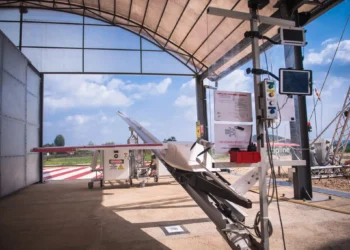Nigeria grabbed 33% of Africa’s blockchain venture capital in the first half of 2024. The region raised US $34.7 million across 12 deals, a 9% increase in deal count, even as funding dropped 70% compared to H1 2023. Yet Nigeria stood out, securing US $13 million, the second-highest share behind Seychelles (44.3%), and ahead of South Africa (17.3%).
Funding Breakdown And Key Players
Nigeria-focused blockchain startups saw significant interest in H1 2024. Most funds went to early-stage grants supporting infrastructure and DeFi. Standout deals included Zone Payment Network, born in Nigeria, which raised US $8.5 million to enable cross-currency digital payments. Other African blockchain leaders include Seychelles-based ELFi (US $5million) and South Africa’s NFTfi (US $6 million).
Explosive Growth Amid Global Slowdown
Africa’s blockchain venture funding ballooned 429% in 2022, reaching US $474 million, a stunning contrast to the global blockchain growth of just 4% that year. Funding stayed resilient into 2023 (US $135 million) and continued burgeoning in H1 2024 despite global economic pressures.
Why Nigeria Dominates
Nigeria ranks first in Africa for new Web3 developers, contributing over 4% to the global pipeline in 2024. The country hosts more than 80 Web3 startups raising US $130 million cumulatively, including US $20million in 2024.
Nigeria emerges as a hotspot for stablecoins. In Q1 20204 alone, it moved nearly US $3 billion through stablecoin transactions, highlighting blockchain’s everyday utility.
Nigeria counts 1.1 million developers, with 86% under age 27. More than 50% entered Web3 in the past year, though only 15% hold full-time jobs in the sector, 45% of them earn in stablecoins.
Regulators granted banks permission to serve licensed crypto firms in December 2023, reversing the 2021 ban. The SEC launched the ARIP program offering temporary licences.
Vision And Challenges Ahead
Nigeria’s blockchain momentum reflects grassroots innovation, developer energy and real-world application. Startups focus on payment infrastucture, identity systems, land registries, healthcare records and education. Despite this, regulatory fragmentation and unclear digital-asset legislation still pose risks.
Conclusion
Nigeria now captures a third of Africa’s blockchain funding in H1 2024. Its growth stems from a vibrant developer ecosystem, stablecoin-driven payments, institutional support and emerging regulation. If it stabilizes legal frameworks and nurtures its talent, Nigeria stands to lead Africa’s digital transformation through blockchain.




